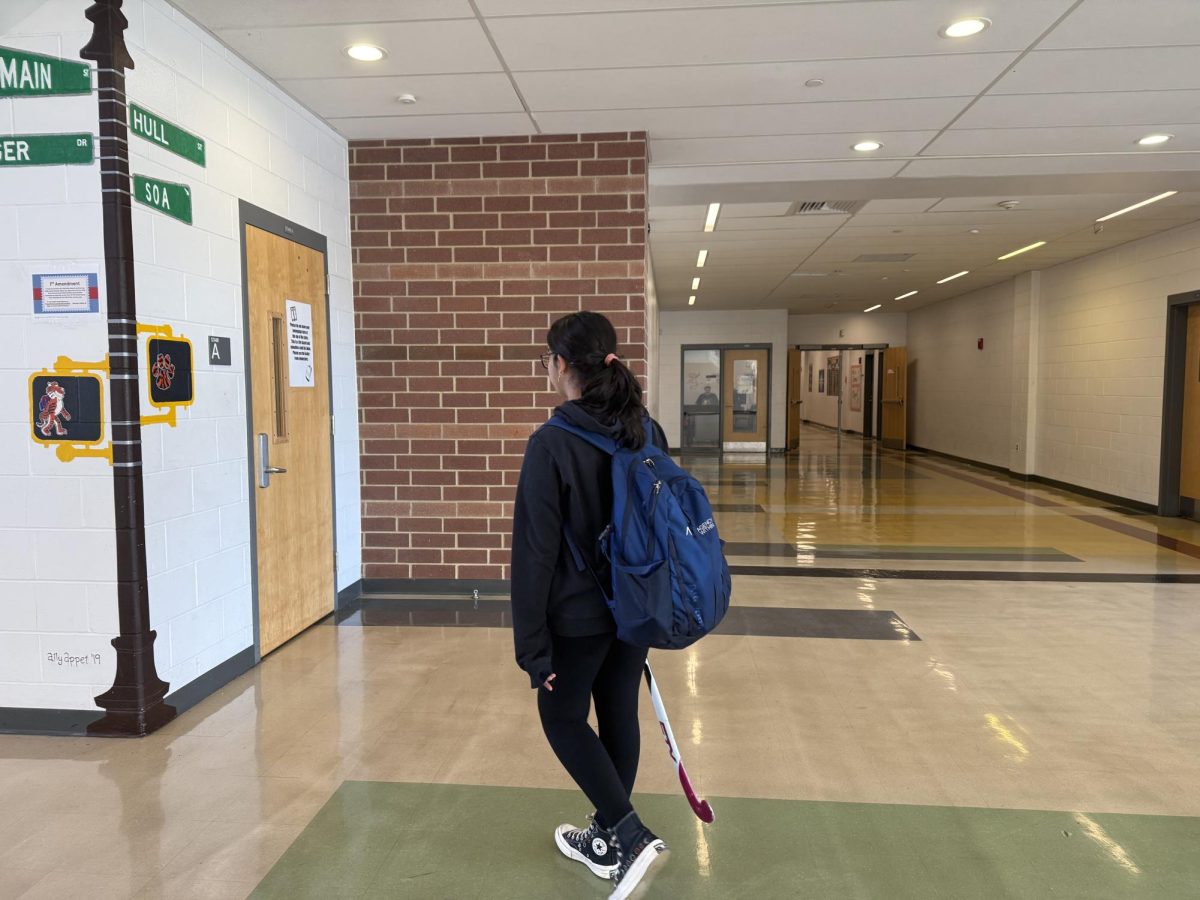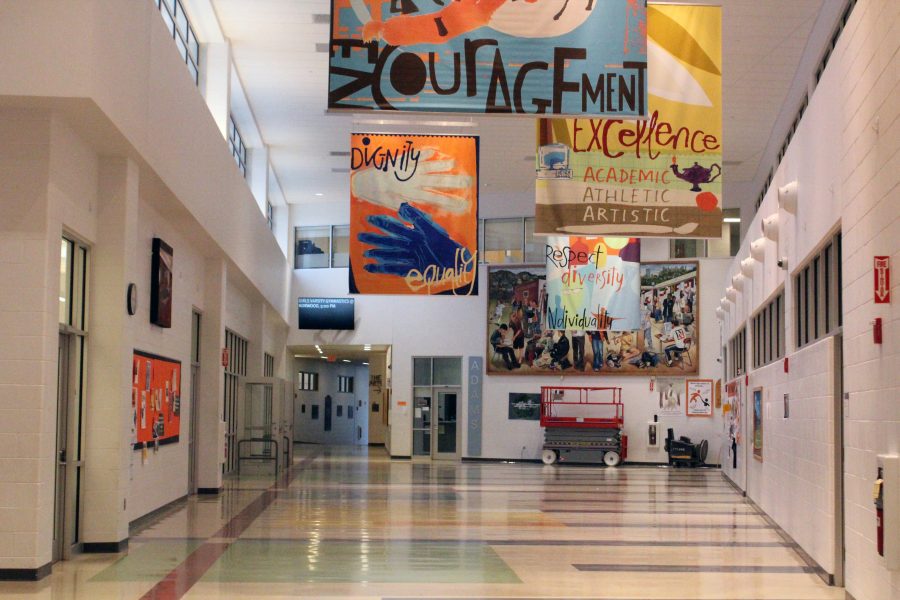by Amy Morrill and Tali Falk-Judson
In light of recent anti-Semitic and offensive incidents both online and in our school, principal Henry Turner addressed students and families twice in the past week asserting the school’s commitment to students’ safety and the administration’s obligation—and legal right—to deal with such conflicts.
Among the incidents Turner mentioned were a swastika etched in the dirt near the softball field, online conflicts between students involving politics, and a photo of “Sponge Bob” with a swastika that was texted to a group of students. He also mentioned president Donald Trump’s executive order on immigration, which affects many students and teachers at North.
“There’s some tension in our school based on people’s political beliefs, and some people are not handling that tension well and are overstepping,” said Turner.
Responding to the online incident, Turner said, “The reason for the email, and what I’m repeating on the loudspeaker during homeroom, is for us to be more thoughtful and more intelligent in the ways that we work with each other when we disagree.”
Turner added that the school has a legal right to deal with incidents that occur on social media under bullying laws. According to Massachusetts state law, bullying is repeated harassment of a victim that creates a hostile environment at school, among other parameters.
He also said that administrators “have a responsibility to get involved.”
Yet many students questioned whether the school should be able to enforce rules about electronic interactions.
“I don’t know if I want the school to be able to interfere online,” said sophomore Raphael Steyn. “On one hand, it is the school’s job to make people safe, but on the other hand, the internet isn’t really part of the school.”
Similarly, senior Alexus Garcia said, “It isn’t the school’s business to tell [the students] what to do on our own time on our own devices. It’s our private life that doesn’t interact with the school at all.”
Riley House dean Michelle Stauss echoed Turner in her belief that administrators have an important role to play in teaching students to be safe online. For example, all freshmen take an anti-bullying lesson focused on safety on the internet, which is one way the school tries to convey clear expectations for online behavior.
She added that she is not usually involved with social media conflicts unless “something negative that happened online impacts our students’ sense of safety.”
Sophomore Dylan Foster said that he also thinks the school should “teach students what we should do with social media,” but added, “I don’t think they can do much because it’s outside of school.”
Indeed, Turner said, it is “challenging” for administrators to attempt to deal with all social media conflicts because they occur in “many different formats.” He added, “as opposed to us responding only to events that come to our offices,” administrators should give students the tools to “feel empowered in those situations to be good citizens.”
Both Stauss and Turner stressed the importance of standing up to offensive or hurtful posts on social media.
“If students see something negative online,” said Stauss, “I’m hoping that they would take a stand and say that’s not right, and either ask the person to take it down or stop. If they feel like they weren’t making any progress in that realm, then I think they should get some support from an adult in their life who they trust.”
Stauss added that there are both pros and cons to social media, which students need to be aware of. “There’s all the fun of social media, like exchanging photographs and fun videos, and connecting quickly with your friends,” she said,” but on the flip side of that, I see students struggling with having difficult conversations that would probably be better and more fruitful face to face.”
Turner addresses incidents of bullying, hate speech at North
February 7, 2017
0
Donate to The Newtonite
More to Discover











































